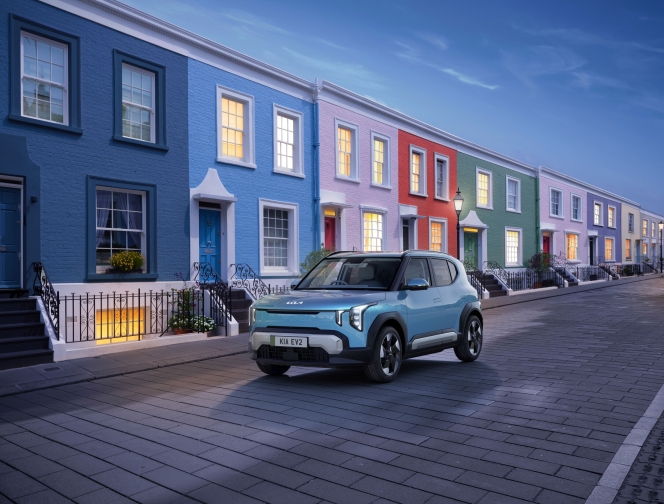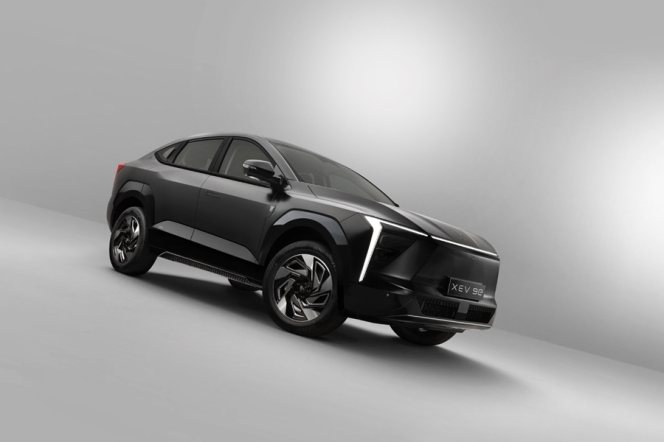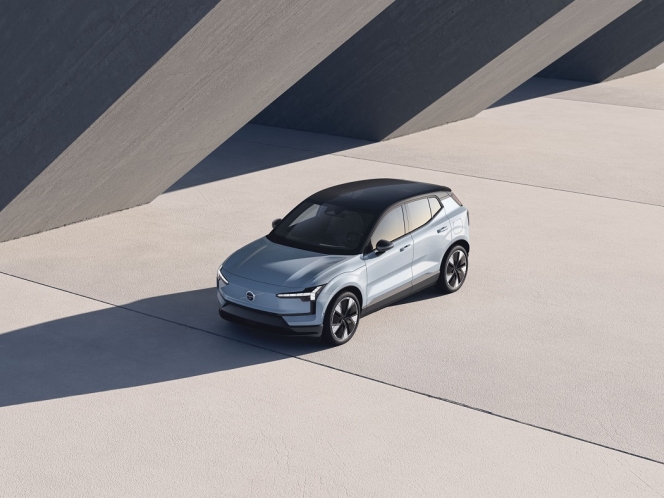
An interesting picture is emerging in India as the EV scene heats up. The big players like Bajaj Auto, TVS Motor Company and Hero MotoCorp and Honda Motorcycles & Scooters India have shed any reservation they would have had about India’s EV market to mark their presence. The movement of these big wigs in the 2-wheeler space is taking place amid a certain clout created by new entrants at the organised end of the EV market like Ather Energy and Ola Electric as well as at the unorganised end of the EV market by entrants like E-Ashwa, ADMS e-bikes, Miracle 5, etc.
What is turning the EV scene in India more interesting is how the small EV players that could be described as those belonging to the unorganised part, are organising themselves to take on the big wigs. A recent development in Maharashtra where the transport authorities seized and fined low-speed two-wheelers that could exceed the stipulated maximum speed of 25 kmph and possibly possessed batteries and motors that exceeded the capacity put down in the rules has led to the smaller EV players to organise themselves as an association that would help them deal with any such eventualities in the future. The treatment meted out to them during the event made them think of a strategy that would effectively make them portray themselves as bigger and stronger. Make them possess the ability to represent themselves better and to lobby effectively if the needs arises.
A similar development is taking place in the three-wheeler category as well. Starting of as small enterprises, electric three-wheeler manufacturers from across the country are beginning to organise themselves as they find that the bigger and better organised players like Piaggio and Ampere are beginning to corner a share of the electric three-wheeler market in the passenger as well as the cargo carrier level.
Moving up the value chain and taking to work closely with Indian suppliers, the smaller three-wheeler manufacturers are investing in better R&D, seeking help from specialised associates at the testing and components supply end to ensure that their vehicles meet the regulatory demand as well as the market expectations.
Smaller electric three-wheeler manufacturers are also working closely with financiers to drive sales while keeping an eye on the regulatory changes and announcement of incentives by states as they announce EV policies in line with the one that the Union Government has drawn. Drawing attention to the EV policy announced by the State of Haryana, Suman Mishra, CEO, Mahindra Electric Mobility, said that her ompany welcomes the move. Terming it as ground breaking, she averred, “What is encouraging is that there is a comprehensive EV policy backing this move. Slashing emissions from the road transport sector forms a pivotal part of India's efforts to de-carbonise its economy and a well-articulated, incentivised EV policy is crucial to creating a conducive environment for the adoption of EVs.”
As the bigger players like Mahindra and Piaggio continue to invest in network expansion, technology upgradation and development of products that are more efficient, the smaller players are taking to collaborations. They are working closely with components suppliers – many of whom are common to the bigger players – to ensure reliance on technology and to enhance their ability to sell reliable EVs. An emerging EV supply chain is almost ‘God-sent’ to the smaller Indian EV manufacturers. Also, the emergence of unique solutions providers like those that are supplying battery pack casing to facilitate easy swapping or charging of the battery or those that are making available test and certification facilities that would otherwise need high investments.
Opinions and feedbacks have been called for by an agency under the aegis of Niti Aayog to prepare a draft for battery swapping policy even as the BIS standard has been made mandatory for EV batteries. There is however a need to reconsider the battery dimension regulation as far as the terminals are concerned, it seems. An industry source mentioned that a new concept of sunken terminals which are safe and efficient rather than the lead-acid battery-like terminals said to be under consideration with appropriate protection show go a long way in revolutioning the use of lithium-ion batteries, he informed.
The battery swapping policy draft is expected to be made public by the end of July 2022 and a policy expected to be announced soon after. At the passenger vehicle level, it is the big wigs like MG Motors and Tata Motors who have been calling the shots. New entrants like BYD are also planting their feet in the market that is growing at a fair pace. As the charging infrastructure grows amid high fossil fuel prices, electric passenger vehicles are growing in the face of attractive incentives, a growing drive range and increase vehicle performance.
At the CV level too, it is a combination of established players like Tata Motors and new entrants like Olectra-BYD and JBM that have been calling the shots. The EV proliferation is at the bus-end of the market. The buyers are mostly city and state transport organisations. The act of purchasing electric buses is also helped by government initiatives like FAME II, which is claimed to be public transport oriented, are helping their proliferation. Given the complex nature of contracts for the supply of electric buses to government and semi-government organisations, it is the organised players with a deep understanding of the market that are at the forefront. What is surprising is how the new entrants like JBM and Olectra-BYD have succeeded in getting a strong hold. Their e-buses too are found along side the e-buses supplied by Tata Motors and Ashok Leyland in most cities in India.
EVs have been big levelling act in India, mentioned an industry source. He drew attention to how the smaller and bigger players are jostling for the same market space almost. A right thrust on infrastructure creation and an emphasis on generation of electricity from greener sources should help EVs to prove to an extent that their cost to the environment is lower than that of the fossil-fuel vehicles, he added. For EVs to be truly environmentally friendly, efforts are being for scientific recycling and processing of vehicles and their components. The small and big players are expected to work together to achieve this goal, making the EV ecosystem in India are ‘true levelling’ ground. Something, which the fossil-fuel intensive auto sector has so far been unsuccessful to create.
Kia UK Announces ‘First Drive Weekend’ Events For Kia EV2
- By MT Bureau
- March 03, 2026

Kia UK is set to introduce its newest electric model, the EV2, to the public through a series of dedicated test drive events running from 16 April to 27 June 2026. The nationwide ‘First Drive Weekend’ initiative will see nearly all of the brand's 190 dealerships participate, providing customers with exclusive early access to this highly anticipated vehicle.
Structured around the theme of new beginnings, these events will offer attendees the first opportunity to engage with the EV2, explore Kia's latest electric design language and potentially take their first step into the brand's electric vehicle family. Given the limited capacity at each venue, interested individuals are advised to book their spots online in advance.
Taking place on Thursdays, Fridays and Saturdays, each event is designed to deliver a personalised and memorable experience. Guests will have a dedicated one-hour appointment, during which they will receive an expert-led walkaround of the vehicle, allowing for in-depth discussion and questions. This is followed by a comprehensive 30-minute test drive on a pre-planned route, giving participants a genuine feel for the car's performance and technology across different driving conditions. The experience concludes at the dealership, where attendees can continue exploring the Kia model range with the sales team.
The Kia EV2 itself represents a significant addition to the compact SUV market. Engineered and manufactured in Europe for European drivers, this model is Kia's smallest electric vehicle to date. Despite its compact dimensions of just over four metres, it offers remarkable interior space and up to 362 litres of boot capacity, a benefit of its dedicated electric platform. Customers will have a choice of two battery sizes, both capable of rapid charging from 10 to 80 percent in approximately half an hour.
The vehicle also introduces advanced technology typically found in larger, premium models. This includes a triple-screen display, over-the-air software updates and Vehicle-to-Load and Vehicle-to-Grid capabilities. A standout feature is the Remote Smart Parking Assist, which allows the car to be manoeuvred from outside using the key fob. The design philosophy, named Opposites United, incorporates sustainable materials, bringing a sophisticated and connected experience to a more accessible price bracket.
This nationwide event series follows the successful introduction of other Kia electric models, such as the EV3 and EV6, through similar dealer-led programmes. Last year's comparable events for the EV4 and EV5 attracted over 15,000 reservations, highlighting strong public interest. Full UK pricing and specifications for the EV2 will be announced shortly, with the first customer deliveries anticipated before the end of the year.
Kia Europe Appoints Erhan Eren To Lead PBV Expansion
- By MT Bureau
- March 02, 2026

Kia Europe has announced a significant leadership appointment aimed at accelerating its push into the commercial electric vehicle sector. Erhan Eren has taken the role of Director for Platform Beyond Vehicle (PBV) with effecf from 1 March 2026, reinforcing the company's commitment to establishing a comprehensive electric mobility ecosystem tailored for European markets.
Operating out of Kia's European headquarters in Frankfurt, Eren will be responsible for steering the strategic growth and practical deployment of the PBV portfolio across the region. His duties will encompass managing the entire PBV ecosystem, from crafting market entry strategies to ensuring seamless collaboration between the central headquarters, individual European markets and key conversion partners. A core part of his mandate will be to strengthen the regional PBV team and ensure that Kia's flexible, modular vehicle architecture is effectively localised through conversion and homologation to meet the specific demands of European fleet operators.
With a career spanning over 18 years in the commercial vehicle industry, Eren brings extensive expertise in trucks, buses and vans. His background includes significant leadership roles overseeing profit and loss, international market expansion and the introduction of advanced battery-electric and fuel-cell technologies. He has a proven track record in cultivating high-performance sales and service networks and developing customer-focused mobility solutions for various commercial sectors.
Eren's arrival coincides with a period of rapid progress for Kia's PBV initiative. The programme recently achieved a notable milestone as the Kia PV5 was named the International Van of the Year 2026, highlighting the brand's growing stature in the light commercial vehicle arena. The overarching PBV strategy is centred on a dedicated electric platform that utilises modular body designs, adaptable interiors and sophisticated connectivity features tailored for logistics, delivery and specialised applications. This integrated approach, which combines hardware, software and a network of conversion specialists, is designed to lower total ownership costs while providing superior operational flexibility.
The rollout of this new generation of vehicles commenced in late 2025 with the introduction of the PV5 Passenger and Cargo variants, followed by the PV5 Chassis Cab. Looking ahead, larger models like the PV7 and PV9 are planned, supporting Kia's ambitious global target of selling 250,000 electric PBV units annually by 2030.
Eren said, “Kia’s PBV strategy is redefining what businesses can expect from an electric vehicle, pairing a dedicated platform with modular flexibility and advanced connectivity. My priority is to ensure customers benefit from a seamless, reliable ecosystem – from strong product fundamentals to service, uptime support, converter integration and parts availability. This role brings together everything I value: practical innovation, purposeful transformation and creating real impact for customers.”
Sjoerd Knipping, COO, Kia Europe, said, “Kia is emerging as a game‑changer in commercial electric mobility and our PBV approach offers the B2B market a new standard in purpose‑built solutions. With his extensive experience in commercial mobility and electrified fleets, Erhan Eren will play a vital role in driving the next chapter of Kia’s PBV strategy in Europe.”
Mahindra Launches XEV 9e Cineluxe Edition At INR 2.93 Million
- By MT Bureau
- March 01, 2026

Mumbai-headquartered automotive major Mahindra & Mahindra has unveiled the XEV 9e Cineluxe Edition at INR 2.93 million (ex-showroom), the edition is based on the top-tier Pack Three variant. Bookings for the vehicle open on 2 March 2026, with deliveries scheduled to commence on 10 March 2026.
The Cineluxe Edition introduces exclusive exterior options in Satin Black or Satin White. The interior features a colour scheme of Chestnut Brown and Nocturne Black with leatherette upholstery.
On the inside, it is designed around a triple HD display that spans the dashboard from coast to coast. Audio is provided by a 16-speaker Harman Kardon system featuring Dolby Atmos technology.
The XEV 9e Cineluxe Edition gets a 79 kWh battery pack providing a claimed range of over 500 km. Triple HD screen setup and a StraightAhead VisionX augmented reality (AR) heads-up display. HandsFree Park (Auto Park Assist) and EyeDentity Driver and Occupant Monitoring. Specific HVAC modes including Camp, Keep and PawPal. An Infinity Roof with ambient lighting offering 16 million colours.
Volvo EX30 Adds Good Design Award 2025 To Growing Accolade List
- By MT Bureau
- February 28, 2026

The Volvo EX30 has secured the Good Design Award for 2025, further cementing its status as a celebrated electric vehicle. This compact SUV distinguishes itself through Scandinavian design philosophy prioritising sustainability, achieving the lowest carbon footprint of any electric Volvo through innovative use of recycled and natural materials. The Transportation category award recognises excellence in design, innovation, and sustainability.
Since its summer 2023 debut, the EX30 has become an instant classic and the company’s first small SUV, expanding the electric portfolio while attracting new customer segments. With nearly 200,000 units sold and a driving range extending to 475 kilometres, the model has demonstrated considerable market appeal. Recent updates have further refined the vehicle following its successful launch.
The design challenge involved creating a premium, accessible electric vehicle with high sustainability performance. Designers fundamentally rethought conventional approaches, guided by a principle of achieving more with less. By maximising component functionality and reducing material requirements, they diminished environmental impact while increasing interior spaciousness and managing costs. This philosophy preserved classic Volvo principles of design, safety and sustainability while making them accessible to a wider audience.
Despite its compact dimensions, the EX30 maintains the confidence and Scandinavian simplicity characteristic of larger Volvo models. Its proportions maximise interior versatility through wheels positioned at the corners with equal overhangs, creating a long wheelbase and planted stance. The vehicle retains essential SUV qualities including versatility, elevated seating position and robust visual presence.
The Good Design programme, established in 1950 by the Chicago Athenaeum, stands among the world’s most respected design accolades. It annually honours products demonstrating aesthetic quality, functional excellence and social responsibility, criteria the EX30 fulfils comprehensively.
The Good Design Award 2025 represents the latest recognition for a model that has accumulated numerous major honours, including World Urban Car 2024, The Sun Car of the Year 2023, Red Dot Best of the Best Award 2024, Car Design Award 2024 and Top Gear Magazine Eco Warrior of the Year 2023. These accolades collectively affirm the EX30’s successful integration of sustainability, accessibility, and distinctive design.
Rekha Meena, Head – CMF Design, Volvo Cars, said, “We are honoured to see our small electric SUV recognised by the jury. The EX30 is designed to be our most sustainable car to date, without compromising on the premium experience and safety that our customers expect. Small yet mighty, the EX30’s smart Scandinavian design projects confidence, maturity and versatility while making it instantly recognisable as a Volvo.”






Comments (0)
ADD COMMENT